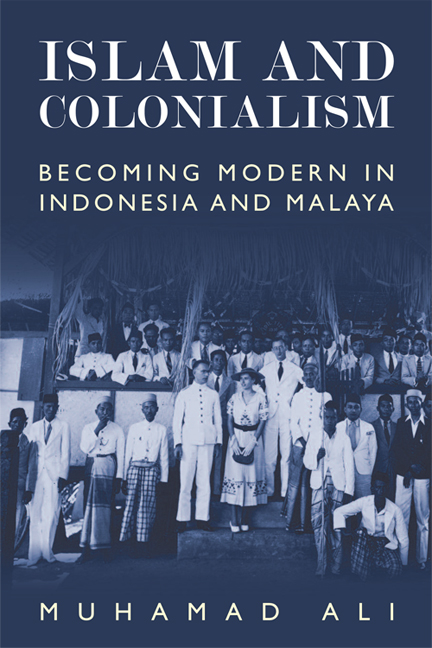Summary
Al-muhafazah ‘ala al-qadim al-salih wa al-akhz bi al-jadid al-aslah. [A. Retaining the good from the past, adopting a better present.]
(Arabic saying cited by Wahid 1999: 80)The historical perspective can make an important contribution towards understanding how modernity's universalism has been successively translated in Southeast Asia so that being modern can be paradoxically both global and local.
(Andaya 1997: 406)The history of each of our own lives is generally and characteristically embedded in and made intelligible in terms of the larger and longer histories of a number of traditions.
(MacIntyre 2007: 222)In a keynote address to the International Research Conference on Muhammadiyah (IRCM) in Indonesia in 2012, Ahmad Syafi'i Maarif, drawing attention to the tension between Islamic nationalism and Western colonialism, argued that ‘Islam, as a liberating force, shared the nationalist ideal of freedom from any alien domination, both politically and militarily’.1 In contemporary Malaysia, British colonialism is seen as being responsible for Christianisation, cultural imperialism, intellectual warfare, secularism, and Westernisation (Al-Attas 1985; Abdullah: 2005). Even the Muslim advocates of a progressive Islam, such as Abdullah Ahmad Badawi, then Prime Minister of Malaysia and the chairman of the Organisation of Islamic Conference (OIC), a grouping of fifty-seven countries, had to emphasise a long history of antagonism between Europeans and Muslims. He said, ‘Muslim nations fell under the European colonial yoke. They lost their sovereignty, and their people lost their freedom. Their resources were exploited and plundered.’2 The preceding chapters have demonstrated the multiple ways in which Muslim reformers and European colonial administrators and scholars differed but also coexisted in formulating progress and pursuing reform and modernisation in Indonesia and Malaya. It has been argued that the colonial powers did not necessarily oppose Islam and local customs, and that Islamic reformers did not always resist Western colonial rule and the processes of modernisation and localisation. An emphasis on Muslim agency shows that reformers rarely felt subjugated as they sought to build ummah, serve the religion and contribute to the larger Islamic community through organisations, publications, legal opinions, and education. In becoming modern, the Dutch and British modernisers and Indonesian and Malay reformers often addressed and judged local and foreign customs in ways that were both contending and coexisting.
- Type
- Chapter
- Information
- Islam and ColonialismBecoming Modern in Indonesia and Malaya, pp. 279 - 296Publisher: Edinburgh University PressPrint publication year: 2015



